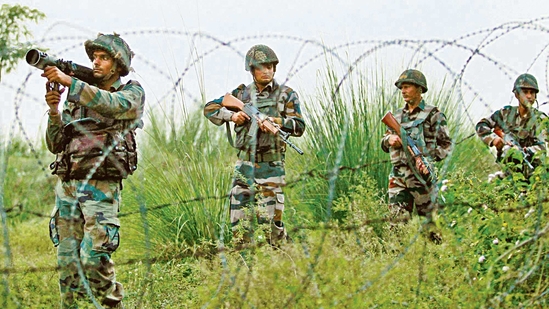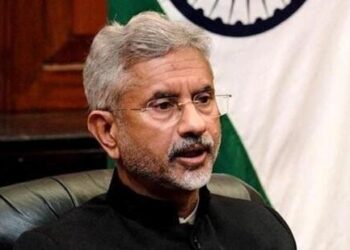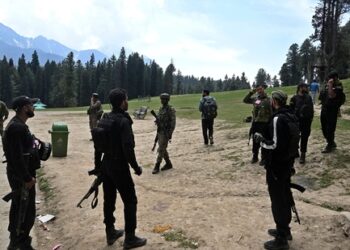Tensions between India and Pakistan have intensified sharply in the wake of the Pahalgam terror attack, with the Indian Army launching a swift retaliation against Pakistan’s latest ceasefire violations along the Line of Control (LoC). On the night of April 29-30, Pakistani forces initiated unprovoked small-arms fire targeting Indian positions in the Naushera, Sunderbani, and Akhnoor sectors of Jammu and Kashmir.
The Indian Army responded promptly and proportionately to the provocation. “Indian Army troops responded swiftly and proportionately,” the Army said in a statement released on Wednesday, reaffirming India’s resolve to not let any ceasefire breach go unanswered.
The cross-border tensions come just days after the gruesome terror attack in Jammu and Kashmir’s Pahalgam area on April 22, which resulted in the death of 26 civilians and left several others injured. The incident, one of the deadliest in recent years, has provoked nationwide outrage and renewed calls for stringent action against terror groups operating from across the border.
Amid the escalating hostilities, Pakistan’s Information Minister Attaullah Tarar alleged that India is planning a military operation within the next 24 to 36 hours, citing what he termed “credible intelligence”. He further accused India of fabricating charges against Pakistan in connection to the Pahalgam incident—claims India has firmly denied.
Prime Minister Narendra Modi, in a recent high-level meeting with top defence officials, granted the Indian armed forces “complete operational freedom” to determine the timing, mode, and targets of India’s response. This move signals a serious and potentially escalatory shift in India’s posture towards cross-border terrorism and ceasefire violations.
India has already taken a series of steps following the terror strike, including the suspension of the Indus Waters Treaty with Pakistan—a critical bilateral agreement that governs water-sharing between the two nations.
Earlier on Wednesday, Union Home Secretary Govind Mohan chaired a high-level security meeting attended by the heads of three paramilitary forces and senior officers from two other security agencies. The gathering underlines the gravity of the current security situation and the coordinated approach being adopted to counter any further threats.
With both military and diplomatic tensions mounting, the region remains on high alert, as India positions itself to take decisive action against those responsible for orchestrating violence on its soil.


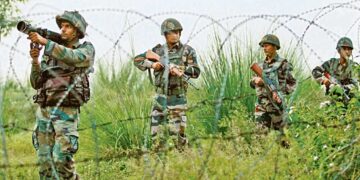




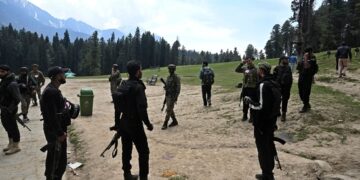
 India
India
